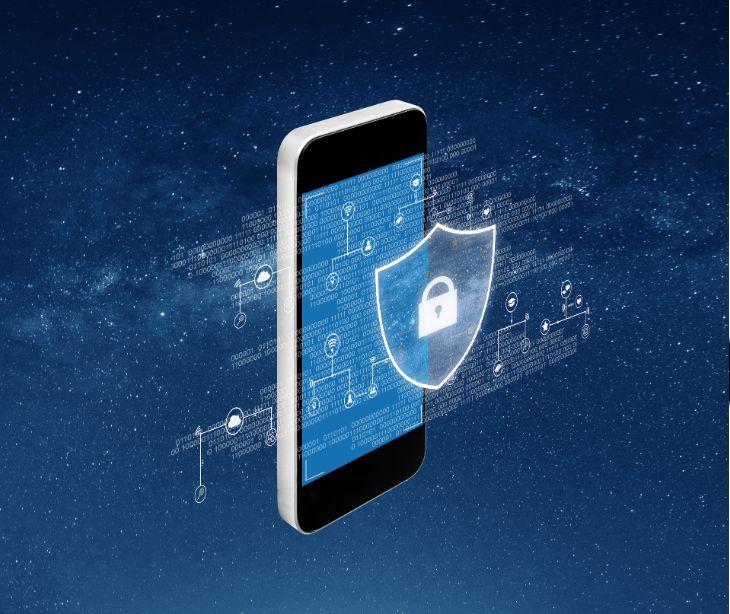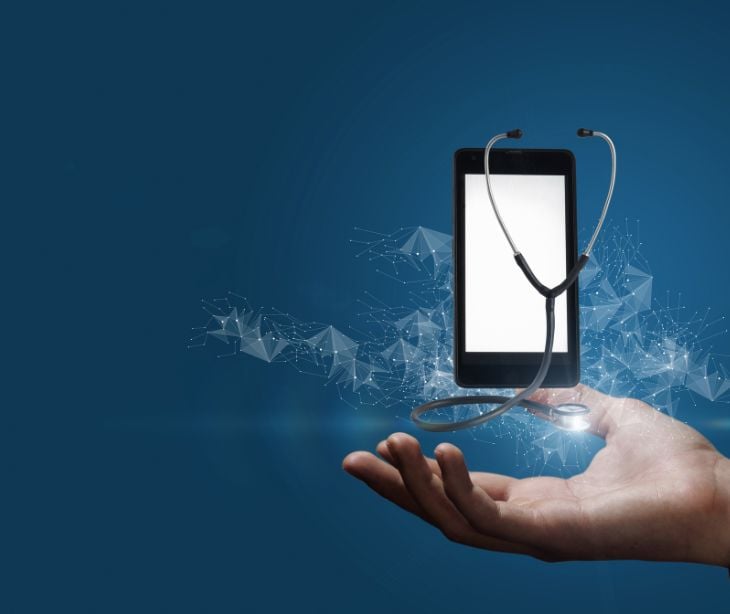
Mobile devices have transformed healthcare communication but pose security risks that must be addressed.
Adhering to HIPAA regulations and implementing security measures protects patient data and maintains the integrity of healthcare systems. By embracing mobile technology responsibly, healthcare organizations can leverage its benefits while ensuring the privacy and security of sensitive information.
Mobile devices in healthcare
Mobile devices like smartphones and tablets have revolutionized how healthcare professionals communicate and deliver care. These devices enable medical professionals to stay connected even when not physically present in the office. The advent of mobile technology has paved the way for a new era in medicine, where technology and patient privacy go hand-in-hand.
The COVID-19 pandemic further accelerated the adoption of mobile devices in healthcare. The need for telehealth services and remote work platforms for medical practitioners skyrocketed, leading to a widespread acceptance of mobile devices as an integral part of healthcare delivery.
Related: HIPAA requirements while working remotely
Security risks associated with mobile devices
While mobile devices offer convenience and flexibility, they also pose significant security risks to healthcare organizations. Mobile phones, tablets, and laptops serve as gateways to healthcare computing systems, making them vulnerable to data breaches and unauthorized access. Unlike in-house computers, mobile devices often lack security measures such as encryption, firewalls, and antivirus software.
One of the primary concerns is the potential loss or theft of mobile devices. Once a smartphone or tablet connected to a healthcare network falls into the wrong hands, the risk of unauthorized access to sensitive information increases exponentially.
Additionally, using outdated operating systems, inadequate authentication practices, and sharing mobile devices with others further expose confidential data to potential breaches.
Smartphone use in hospitals
A study titled Smartphone Use and Security Challenges in Hospitals examined smartphone usage among hospital physicians, revealing that 98.3% use smartphones in clinical practice, yet only 4.5% receive one from their employer. While smartphones are primarily used for professional communication, GDPR-compliant messaging services are rarely utilized. The study highlighted that organizational factors, such as social support and communication about information security, strongly influence security-conscious behavior when choosing apps. Researchers stressed the need for hospital management to implement technical and organizational measures, such as a Bring-Your-Own-Device (BYOD) program, to mitigate potential risks associated with smartphone use in clinical settings.
HIPAA regulations and mobile device usage
To ensure the privacy and security of patient information, the Health Insurance Portability and Accountability Act (HIPAA) regulates the usage of mobile devices in healthcare. HIPAA requires healthcare organizations and individuals associated with them to implement specific security measures when using mobile technology to receive, transmit, or store protected health information (PHI).
While HIPAA does not have specific rules governing cell phone usage, the same overarching regulations apply. Healthcare providers, covered entities, and business associates can use mobile devices to access electronic protected health information (ePHI) as long as appropriate physical, administrative, and technical safeguards are in place. This includes having business associate agreements (BAAs) with third-party service providers with access to ePHI.
Go deeper:
- What is a mobile device management system?
- What are administrative, physical and technical safeguards?
- Business associate agreement provisions
Ensuring HIPAA compliance on mobile devices
Organizations can take several measures to fortify mobile security and ensure HIPAA compliance:
Furnish employees with company tablets
Providing employees with company-issued tablets allows organizations to control their configuration and limit the use of programs and apps that adhere to HIPAA standards.
Mandatory strong passwords
Enforce strong, HIPAA compliant passwords to restrict access to data on mobile devices and ensure only authorized employees can view sensitive information.
Routine configuration, testing and updates
Regularly test and update device configurations, perform malware scans, and apply necessary security patches to mitigate vulnerabilities.
Risk assessments
Conduct regular risk assessments, including mobile devices, to identify potential vulnerabilities and ensure the confidentiality, integrity, and availability of ePHI.
Passcode protection
Educate mobile users about the importance of passcodes and double-authentication to protect ePHI if a device is lost or stolen.
Secure apps
Encourage mobile users to utilize secure apps when communicating sensitive patient information, such as text messages.
Avoid unsecured Wi-Fi networks
Discourage staff from using unsecured Wi-Fi networks, as they pose significant risks to data security. Implement a virtual private network (VPN) to establish a secure, encrypted connection for mobile devices.
Provide extensive policies, procedures, and training
Develop comprehensive policies and procedures for mobile device usage and conduct regular HIPAA training sessions to ensure healthcare professionals know their responsibilities in maintaining data security.
FAQs
How does HIPAA apply to mobile devices?
HIPAA applies to any mobile device that stores, accesses, or transmits protected health information (PHI). Healthcare providers must ensure these devices are secure to prevent unauthorized access.
What are the steps for securing mobile devices under HIPAA?
Steps include encrypting data, using strong passwords, enabling remote wipe capabilities, and ensuring regular security updates to protect PHI on mobile devices.
Can healthcare workers use personal mobile devices for work?
Yes, but they must follow HIPAA guidelines, which include securing the device with encryption, using secure communication tools, and ensuring that PHI is not accessed by unauthorized individuals.
What are the risks of using mobile devices in healthcare settings?
The risks include potential loss or theft of devices, unauthorized access to PHI, and insecure data transmission, all of which can lead to HIPAA violations.
How can organizations ensure mobile devices are HIPAA compliant?
Organizations should implement mobile device management (MDM) solutions, enforce security policies, regularly monitor device use, and train staff on the proper handling of PHI when using mobile devices.
Subscribe to Paubox Weekly
Every Friday we'll bring you the most important news from Paubox. Our aim is to make you smarter, faster.



